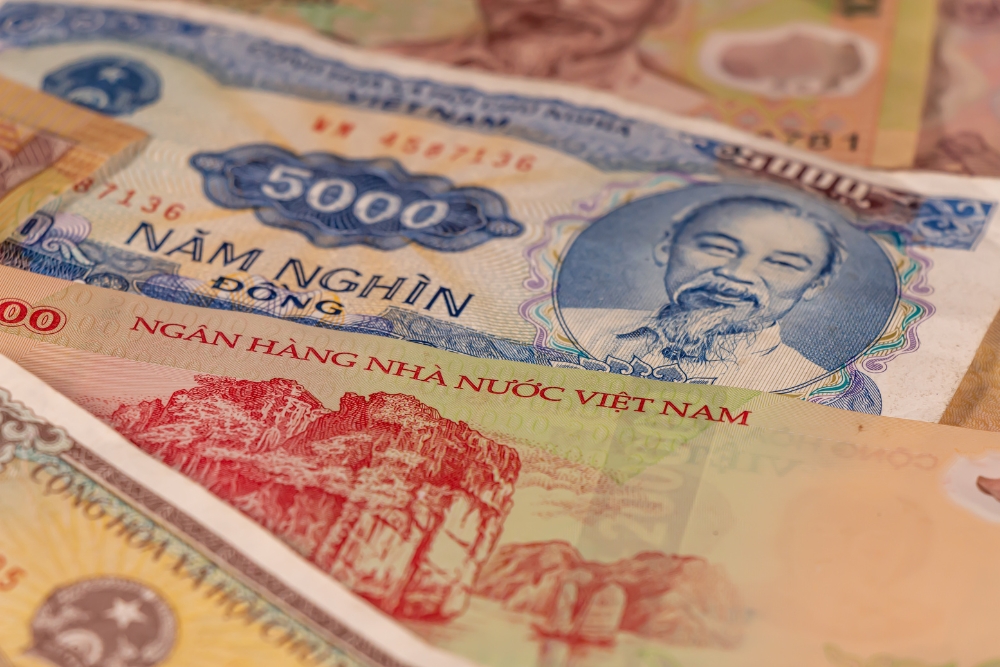If you’ve been scouting your next big move in Southeast Asia, you’ve probably heard whispers (okay, maybe enthusiastic shouts) about starting a business in Vietnam. And honestly, they’re onto something.
Vietnam isn’t just a tourist favorite or a factory hub anymore. It’s becoming a go-to for foreign investors, fast-scaling startups, and multinationals looking to tap into an agile, rapidly growing market. Whether you’re an established brand eyeing new regions or a founder dreaming of setting up your first company in Vietnam, this guide is for you.
Why Establish A Company in Vietnam?
The country offers a potent mix: strong economic growth, competitive labor costs, improving infrastructure, and a government that is increasingly open to foreign investment. From tech and education to logistics and basic business services, Vietnam is making it easier for companies, both global giants and fresh startups, to enter and scale.
Still, navigating company formation as a foreigner can feel like trying to decode a mystery novel in a new language with paperwork that multiplies faster than you can say “charter capital.” That’s where this Vietnam guide comes in.
We’ll walk you through everything:
- How to set up a company
- What it takes to register your business
- Which documents you need, such as the Investment Registration Certificate and Enterprise Registration Certificate
- How to choose the right business structure, whether it’s a limited liability company, a joint stock company, or even a representative office
We’ll also explore smart alternatives for getting started, like using an Employer of Record (EOR). This option lets you set up in Vietnam and hire employees without going through the full process of company establishment.
Whether you’re an investor, a founder, or an employee hoping for a transfer to Vietnam, you’ll find practical answers here without the legal jargon headache.
Let’s dive in and make doing business in Vietnam a lot less intimidating and maybe even a little fun.
Choosing the Right Company Type in Vietnam
Starting a business in Vietnam isn’t just about where or when. One of the most important decisions is the type of company you choose to register. This choice affects your liability, compliance obligations, tax treatment, and even how much control you have.
There are several common legal structures available for foreign investors entering the Vietnamese market. Let’s break them down:
Limited Liability Company (LLC)
The most popular choice for foreigners setting up a business in Vietnam.
- Can be owned by a single investor or multiple shareholders
- Offers limited liability, making it a safer entry into the Vietnamese market
- Suitable for most business activities, from tech startups to consulting firms
- Requires a registered business address, minimum capital, and at least one legal representative
Joint Stock Company (JSC)
Best for larger enterprises or companies planning to scale fast.
- Must have at least three shareholders
- Can issue shares and raise capital more easily
- Common for manufacturing, logistics, or companies needing heavy investment in Vietnam
Representative Office
Ideal for market research or business development—without engaging in direct trade.
- No need to register a company in the traditional sense
- Not allowed to generate revenue in Vietnam
- Requires a legal address in Vietnam and a legal representative
Joint Venture
A blend of foreign and Vietnamese ownership.
- Useful when local knowledge, licenses, or sector-specific connections are essential
- Required in certain restricted sectors under the Vietnamese government’s foreign ownership regulations
Each company in Vietnam comes with its own setup and operational requirements. Your choice depends on the nature of the business, long-term goals, and how quickly you want to scale your enterprise.
Setting Up a Company in Vietnam: What You Need to Know
Once you’ve chosen your company structure, it’s time to get into the real stuff—company setup. Whether you’re registering a limited liability company or using an Employer of Record to test the waters, the process involves several steps.
Key Requirements for Setting Up a Business in Vietnam
1. Business Registration and Company Name
- Choose a unique company name that aligns with your proposed business lines
- Register with the Department of Planning and Investment
Legal Address and Charter Capital
- Every company must have a valid business address in Vietnam
- You’ll need to declare your charter capital, although there’s no fixed minimum capital requirement for most service sectors
3. Investment Registration Certificate (IRC)
- Required for foreign investors
- Grants approval for your investment project in Vietnam
- Issued by the authority of Vietnam within about 15 to 20 working days
4. Enterprise Registration Certificate (ERC)
- Confirms the formation of your legal entity in Vietnam
- Needed before you can open a bank account, issue invoices, or start hiring
5. Business License and Tax Code
- Once you’re a registered business, apply for a business license tax number
- Depending on your sector, you may need special permits or sectoral approvals
Compliance and Operational Must-Haves
- Maintain at least one legal representative residing in Vietnam
- Keep a physical presence at your business address
- Stay on top of compliance requirements, including tax filings and labor reports
- If hiring foreign staff, secure a valid work permit and follow Vietnamese labor laws
Setting up a company in Vietnam takes planning, but it’s far from impossible. With the right support, whether through local company registration advisors or an EOR service in Vietnam—you can hit the ground running without drowning in red tape.
Step-by-Step Guide to Company Setup in Vietnam
So you’ve decided to start a business in Vietnam. You’ve picked your type of company, and now you’re ready to get it off the ground. Here’s a clear path to company setup so you can avoid surprises, delays, and any panic-induced Googling at 2 a.m.
Step 1: Secure a Physical Business Address
Before you can register your company, you need a real, legal address in Vietnam. It can be an office, co-working space, or even a virtual address (depending on the nature of your business activities). Just keep in mind, the Vietnamese government requires proof of this legal address for your application.
Step 2: Apply for an Investment Registration Certificate (IRC)
This certificate is a must for foreign investors.
- It gives you the green light to invest in your chosen business in Vietnam
- You apply through the Department of Planning and Investment
- The process typically takes 15 to 20 working days
- Your investment project needs to match Vietnam’s permitted business sectors
Step 3: Apply for an Enterprise Registration Certificate (ERC)
Once your IRC is approved, it’s time to register your company formally.
- The ERC establishes your legal entity in Vietnam
- Required for opening a business bank account, hiring, and paying taxes
- Your company also receives its business registration certificate and tax code
Step 4: Finalize Your Company Charter and Shareholder Structure
Every new company must define its company charter, outline ownership, and appoint a legal representative.
- You’ll also need to declare the number of shareholders and their shares
- Even basic business services companies must complete this step
- Many foreign investors must open accounts and show capital contributions in USD
Once all of that is in place, congrats—you’ve officially completed company formation.
Essential Compliance for Foreign Investors in Vietnam
Completing your company setup is a milestone, but maintaining it is what keeps you in business. Establishing a company comes with ongoing responsibilities, especially if you’re a foreigner managing a firm in Vietnam.
Key Compliance Requirements
Maintain a legal address at all times
- Submit annual financial reports and tax filings
- Appoint and maintain at least one legal representative with a residential address in Vietnam
- Renew business licenses if required by your sector
- Comply with all labor and employment regulations
Failing to meet these compliance requirements can put your enterprise at risk. Many foreign companies choose to work with local advisors to stay ahead of deadlines and paperwork.
Can You Skip All This with an EOR?
Yes, you can. If you’re not ready to fully incorporate a company, using an Employer of Record (EOR) is a practical shortcut.
- Great for testing the market or hiring before launching a full operation
- The EOR acts as the official employer on paper
- Lets you operate legally without immediate company formation
- Especially useful for service-based businesses or startups with less than USD 50,000 in starting capital
Vietnam has become a smart choice for scaling and hiring globally. Whether you’re going the full route to establish a company in Vietnam, or simply want to get started with an EOR, success lies in understanding the process and staying compliant.
Relocating to Vietnam as an Employee or Expanding Your Team
Starting a business in Vietnam often goes beyond just the paperwork. If you’re planning to set up a company and grow your team, you’ll need to understand the local employment landscape—how to hire and pay Vietnamese employees legally and competitively.
Vietnam is friendly to foreign investors, but proper procedures are essential.
Work Permits and Visas
If you’re a foreign investor relocating to manage operations or transferring staff into your new Vietnam company, a valid work permit is required.
- The sponsoring company is required to initiate and submit the application
- Expect a processing time of 10 to 15 working days
- Business visas are also available for short-term stays or exploratory visits
Hiring in Vietnam: What to Expect
Once your company is set, you can recruit both Vietnamese and international employees. Vietnam offers a skilled and youthful workforce, especially in tech, design, and business services sectors.
- The average salary in Vietnam varies by industry but remains highly competitive compared to neighboring countries
- Many local companies and foreign investors offer a Tet bonus, an annual bonus typically paid before the Lunar New Year, as part of customary compensation
Understanding local expectations like the Tet bonus helps you attract top talent and create a more attractive offer package for Vietnamese hires.
If you’re not ready to fully incorporate a company, you can still legally employ staff using an Employer of Record (EOR). This option lets you hire quickly, handle payroll, and stay compliant without completing full company formation. It’s ideal for business services companies with less capital at launch or for teams entering Vietnam cautiously.
Is Starting a Business in Vietnam Worth It?
Absolutely—if you do it right.
Vietnam has emerged as one of Southeast Asia’s most attractive destinations for investment. Its combination of business-friendly policies, affordable labor, and access to regional markets makes it an ideal launchpad for companies of all sizes. Whether you’re a solo investor, a scaling startup, or an established multinational, establishing a company in Vietnam can unlock serious growth.
Still, it’s not a plug-and-play situation. Every company in the country must follow detailed steps—from securing a legal address to applying for the required investment registration certificate. The company is required to follow specific legal, tax, and employment rules. Skipping or rushing these can lead to delays or worse.
But with the right guidance—and the occasional strategic shortcut like an Employer of Record—you can set up a company quickly and confidently.
If you’re serious about company setup, expanding your enterprise, or exploring foreign investment options, this Vietnam guide has hopefully made the process a little less overwhelming.
Still have questions? Contact us to make your next move in Vietnam smooth, compliant, and growth-ready.
FAQs – How To Establish Company in Vietnam
1. Can I own 100% of a company in Vietnam as a foreigner?
Yes, in most sectors Vietnam permits 100% foreign ownership, allowing you to set up a business without needing a local partner. This is especially common in service industries, tech, consulting, and trading. However, some regulated sectors such as education, logistics, or healthcare may require joint ventures with Vietnamese partners.
Before you register your company in Vietnam, it’s important to confirm if your intended business activities fall within sectors open to full foreign ownership. The best way to ensure compliance is to consult a local expert familiar with company formation and Vietnamese government regulations.
2. What kind of physical office is required to register a company in Vietnam?
Every company in Vietnam is required to have a legal address in order to complete company registration. This can be a traditional office, co-working space, or even a serviced office, depending on the nature of the business. Keep in mind that the business requires a legal address not just for registration, but also for receiving official documents and complying with inspections.
If you’re unsure which address qualifies as appropriate for your enterprise, our Vietnam guide recommends choosing a space that matches the type of company you plan to operate and is recognized by local authorities.
3. Can I outsource services to Vietnam without starting a company?
Yes, many businesses choose outsourcing in Vietnam as their entry strategy. You don’t need to establish a company to outsource functions like tech development, design, or support. It’s a flexible option that allows you to benefit from Vietnam’s skilled workforce without going through company registration or legal setup.
4. What is the minimum capital required to start a company in Vietnam?
Vietnam does not have a universal minimum capital requirement for all business types. However, your declared capital should align with your business plan and operational needs. Most companies with less than USD 10,000 in capital can still successfully register if the business scope is reasonable—particularly in basic business services like marketing, software, or consulting.
Capital also affects visa eligibility for foreign investors, so choosing the right amount can impact both your ability to establish a company in Vietnam and your legal presence in Vietnam.
5. Which business is most profitable in Vietnam?
Profitability depends on market trends, your experience, and your capital. That said, some of the most profitable sectors for foreign investors and local entrepreneurs include:
- E-commerce and logistics
- IT and software development
- Food and beverage
- Education and training services
- Tourism and hospitality
Vietnam’s fast-growing middle class, youthful workforce, and digital adoption make it a hotbed for innovation. For many, launching a business services company or an online venture offers a low-cost, high-potential path into the market.
Before you start a business in Vietnam, research which sectors are open to 100% foreign ownership and consider whether your company is set up to meet local needs.










